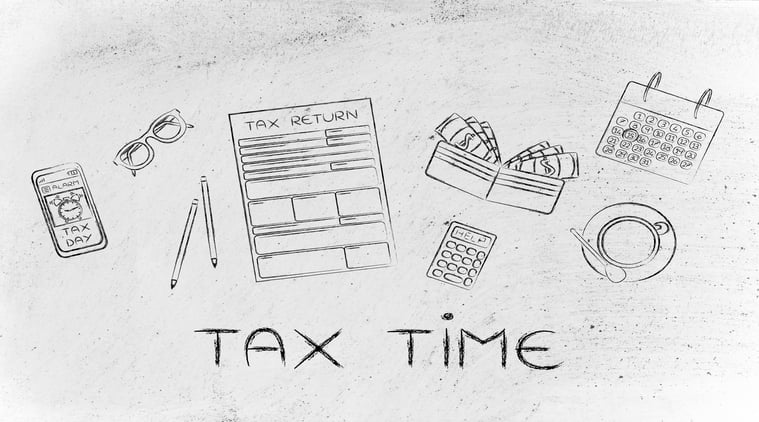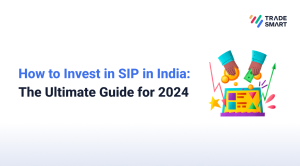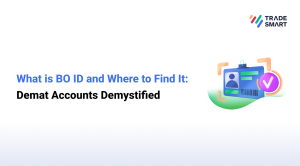
In this article we have tried to summarize the income tax treatment imposed on financial instruments in India with their rates. Since tax rates are dynamic it always advisable to contact certified tax consultant or financial experts before taking any decision or action.
How returns from investment in shares online trading & various assests are taxed?
EQUITY
Stocks:
- If you hold on to them for a year, the long-term capital gain is tax free
- Short-term capital gain is taxed at 15%
- Dividends are tax free
DEBT FIXED INCOME INSTRUMENTS
Savings a/c:
- Interest up to Rs 10,000 is tax free, taxed at slab rate after that
- TDS not deducted on savings interest.
Fixed deposits:
- Full interest taxed at slab rate
- TDS of 10% if interest in any financial year crosses Rs 10,000
Recurring deposits:
- Full interest taxed at slab rate
- TDS not deducted on RD interest
Tax-free bonds:
- Full interest is tax free
- The long-term capital gain (after holding for 1 year) taxed at 10%
- Being interest bearing instruments, no indexation benefit allowed
- Short-term capital gain taxed at marginal rates.
Normal bonds and debentures:
- Full interest taxed at slab rate TDS of 10% if interest in any financial year crosses the Rs 5,000 mark
- The long-term capital gain (after holding for 1 year) taxed at 10%
- Being interest bearing instruments, no indexation benefit allowed
- Short-term capital gain taxed at marginal rates.
Also Read : Dream a Dream come true
MUTUAL FUNDS
Equity funds:
- Long-term capital gain (after holding for 1 year) is tax free
- Short-term capital gain is taxed at 15%
- Dividends are tax free
Arbitrage funds (Provided they maintain equity fund status):
- Long-term capital gain (after holding for 1 year) is tax free
- Short-term capital gain is taxed at 15%
- Dividends are tax free
Equity oriented balanced funds:
- Long-term capital gain will be tax free
- Short-term capital gain taxed at 15%
- Dividends are tax free
Debt funds:
- Long-term capital gain (after holding for 3 years) is taxed at 20% after indexation
- Short-term capital gain taxed at marginal rates
- Dividends are tax-free in the hands of the investor, but scheme pays a very high dividend distribution tax of 28.32%
Debt-oriented balanced funds:
- Long-term capital gains (after holding for 3 years) taxed at 20% after indexation
- Short-term capital gain taxed at marginal rates
- Dividends are tax-free in the hands of investors, but scheme pays a very high dividend distribution tax of 28.32%
Gold funds:
- Long-term capital gain (after holding for 3 years) taxed at 20% after indexation
- Short-term capital gain taxed at marginal rates.
GOLD
Gold bullion and ornaments:
- Long-term capital gain (after holding for 3 years) taxed at 20% after indexation
- Short-term capital gain taxed at marginal rates.
Gold bonds:
- Small interest received in the middle will be taxed at slab rates
- Long-term capital gains (after holding for 1 year) taxed at 10%
- Being interest bearing instruments, no indexation benefit allowed
- Short-term capital gains taxed at marginal rates.
Also Read : Fixed Deposit v/s Equities – Which is better?
Open Lowest Brokerage Trading Account Here
INSURANCE
Endowment policies
- Final proceeds tax free if premium in any year did not exceed 10% of the sum assured
- TDS of 2% if the total receipt crosses Rs 1 lakh in financial year
- Investors should consider service tax paid on premiums also while calculating returns (Service tax shall be replaced by GST @18% with effect from 1st July 2017)
- For endowment plans, it is 3.5% for first year’s premium and 1.75% for the renewal premium.
ULIPS
For ULIPs, service tax is 14% on all charges (like mortality charges, AMC fees, switch fees, etc) – (Service tax shall be replaced by GST @18% with effect from 1st July 2017)
REAL ESTATE
- Rent received (or notional rent for the locked up second home) are taxed at slab rate
- Deductions available for rent includes property tax, repair costs, home insurance, etc
- The long-term capital gain (after holding for 3 years) is taxed at 20% after indexation
- Short-term capital gain is taxed at the marginal rates.
REAL ESTATE INVESTMENT TRUST (REIT)
- Long-term capital gain (after holding for 1 year) from REIT units listed and traded in stock exchanges will be tax free
- Short-term capital gain from REIT units listed and traded in stock exchanges will be taxed at a lower rate of 15%
- REIT will be pass through vehicle and is not liable for any income received by it
- Rents received by REIT and distributed will be taxed at the hands of investors as rental income
- Interest received by REIT and distributed will be taxed at the hands of investors as interest income
- Dividends received by REIT and distributed will be tax free in the hands of investors.
Securities Transaction Tax (STT):
STT is levied on stocks and equity mutual funds in lieu of tax-free dividends and also lower capital gain taxes. Equity mutual funds are defined as schemes that maintain more than 65% equity exposure and because of that, equity oriented balance funds and arbitrage funds also comes under this category.
Dividend distribution tax (DDT):
The mutual fund dividends are tax-free, but there is a dividend distribution tax (DDT) applicable for debt mutual funds. The high DDT (works out to be 28.32% now) has taken the sheen out of the dividend options in debt mutual funds.
Indexation benefit:
While computing long-term capital gain (LTCG), indexation benefit is provided as compensation against inflation.
[email-subscribers namefield=”NO” desc=”Subscribe now to get latest updates!” group=”Public”]













[…] Also Read: How returns from various asset classes are taxed? […]
[…] getting into more detailed research which was conducted by IIFL for different asset classes such as Glod, Equities, Bank Fixed Deposit, and Property aka real estate for a period ranging from […]
[…] Also Read How returns from various asset classes are taxed? […]
[…] Also Read : How returns from various asset classes are taxed? […]
[…] Also Read How returns from various asset classes are taxed? […]
Hi Nilesh,
Request you to elaborate your query. As far as benefit is concerned it depend on your trading strategy at what price you bought and sold. We also have arranged a call to understand your query but as per the conversation it seems that you are clear with your query. Please let us know in case you need any further assistance.
If I buy and sell after 1 hour…..how much will b my benefit and how to get a good amount of my product….
Hello Gopala,
Tax on profits earned in Derivative market is treated as profits from business and profession under income tax act, 1961. Hence it is not treated as speculative profit and taxed as per normal rates applicable to an Individual. Thanks for the comment. We’ll add it to the blog too.
nothing is mentioned regarding profits earned in Derivatives market( futures & options). Kindly answer this